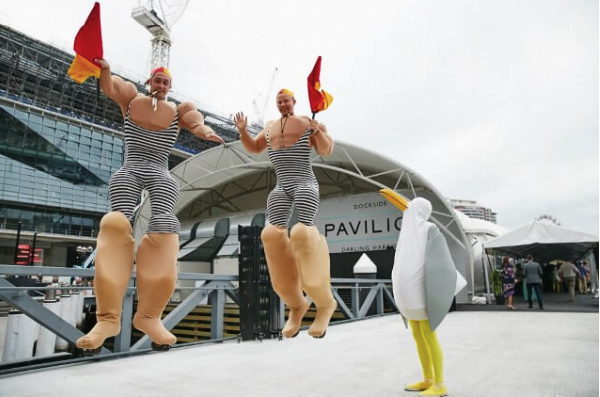Corporate Recognition Awards
Everyone loves a pat on the back. While this is an undeniable truth, running company recognition awards programs means much more than just saying, “Good job,” to your employees. In her article for HR Magazine, Kathryn Tyler makes a great statement about recognition programs as the tools for shaping desired behaviors: “In an ideal program, employees adopt behaviors because of the incentive program and then continue the behaviors after the program ends.” If done right, employee recognition programs will help you motivate people to work more efficiently over the long term.
In this blog post, we want to walk you through the simple process of creating performance-centered awards for corporate recognition.
Reasons for recognition

The landscape of recognition events is very robust, with diverse programs ranging from team awards to creative project awards. No matter what format is chosen, make sure you know what your “whys” are:
- Employee retention as an important organisational value: By spending time on new employee training, you take away valuable hours from your work schedule. Therefore, employee retention that can be fostered through recognition programs is a valuable asset for any company.
- Building a healthy workplace: What is a strong team actually like? First of all, this is a group of people who know how to achieve their goals in a given environment. Motivate people to collaborate better in a workplace through awards campaigns—whether it’s a group project or a peer-recognition program—and focus on incentives that help people relate to each other.
- Inspiring through a mission statement: As the research reveals, 61% of employees don’t know the big mission standing behind the organisation for which they work. Obviously, it’s silly to expect that people will achieve your business goals without understanding them. By aligning awards programs with your company mission, it’s easier to raise awareness.
Occasions for employee recognition
Forget about the “employee of the year.” Seriously, with the diversity of modern business goals and organisational management models, focusing on one boring idea about “the best of the best” is a real crime. Here are some ideas on how to align your recognition goals with different cause events in a creative way:
- Peer-to-peer recognition: As we’ve mentioned before, a healthy workplace can be achieved through recognition. If improving teamwork is something you are striving for, motivate your staff to dive deep into the work of their colleagues and to provide honest feedback on how others perform. With the right tools, peer-to-peer recognition can also be conducted online, which means you don’t have to waste time and resources on the organisation of a ceremony.
- Getting on board: It’s quite common to think about employee awards as something that should happen “after”. Avis is one of those companies that breaks this rule and does it quite successfully. Instead of focusing on achievement-centric awards, they developed a flexible system of bonuses for the new members of the company, including free car rentals and the possibility to earn financial rewards, even during the onboarding process.
- Off-site work bonuses: Let’s say your team has just hit a super-duper important milestone. While champagne is always a good idea, you can let your imagination fly here and do something more creative, such as taking the whole team off site. Whether it is a cosy restaurant or a park, such small ideas will jazz up the routine.
How to create a recognition program

If you look at the anatomy of an awards event, you’ll see a complex arrangement of processes and tasks. Not only do you have to communicate the concept but your task as an organiser is also to ensure the employees do their part by preparing speeches or providing feedback to their peers. Here is a short guide on how to nail the planning process:
Establish the working criteria
At the core of any recognition program lies the criteria based on which the key decisions are made. Check out these five steps to building corporate recognition awards criteria:
- Ask someone who works closely with the target employees to develop the goals of the program.
- It’s a common mistake for team leaders to think they know what’s best for the people they are working with. The reality is, not everyone is motivated by financial bonuses and not everyone finds peer-to-peer recognition objective. Conduct a pre-event survey to understand the expectations of teams and individual employees before establishing the criteria.
- Align the criteria with your employees and teams based on their KPIs. This will help you build a recognition program that brings measurable value to the participants.
- Ensure your employees understand the awards criteria, and clarify them beforehand. You can create a memo that explains the criteria in detail and send it to your employees via email.
Choose a theme
An awards ceremony without a storyline can be successful, but it’s hard to make it memorable. By adding an enticing theme to your awards event, you wrap will the program into a specific idea that resonates with your audience. Ideally, the theme will be aligned with the occasion, but if it’s hard to find that resonating idea, go for a casino night event or a unique yoga party—whatever appeals to your staff.
Check out the story of a recent thematic Beach Party in Melbourne here.

Develop a program step by step
The next and the most important task is to take your corporate recognition awards ideas and weave them into a comprehensive event program. Check out some hacks that work well with recognition incentives:
- Pick an awards management system. Even if it’s a small internal event, having a reliable tool for judging and entry submission will simplify your workload.
- Keep it short. It’s definitely impossible to keep the engagement high if your event is tedious and long. Limit the number of awards to 10–15, and craft a detailed timeline for all speeches to keep the ceremony short.
- Offer some extra value. Whether it’s a speech from an industry leader or a fun live polling activity, think about some interesting ways to jazz things up.
Conclusion
A valuable recognition program is one that not only motivates employees to achieve better results but also helps them to work more efficiently in the future. By knowing your organisation from the inside out, you can build meaningful incentives that work for your staff and enable long-term success for the company.
